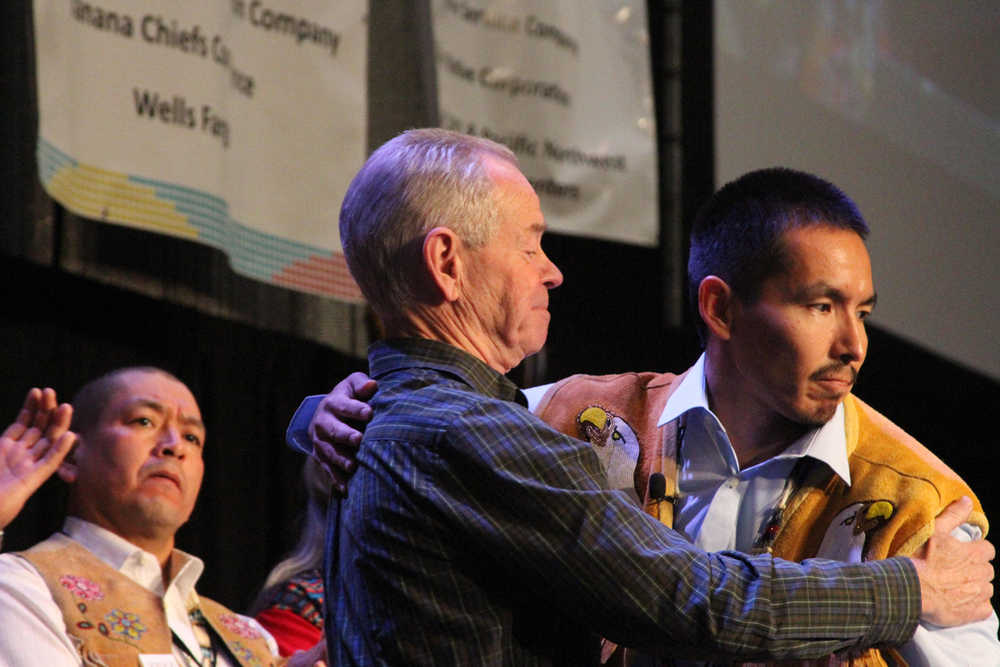ANCHORAGE — Alaska’s governor is considering granting pardons to four men convicted in a Fairbanks teenager’s 1997 beating death. It would be the first time the executive clemency process would be employed since the law was changed eight years ago in response to a controversial pardon by a previous administration.
Gov. Bill Walker is first waiting to see how a proposed agreement plays out between the men, known as the Fairbanks 4, and state prosecutors before taking any action. Here’s a closer look at Alaska’s mechanism for pardons, should the governor proceed with that option:
How does the process work?
Under state law, Alaska governors are authorized to grant pardons and reprieves and to commute sentences. The law requires the governor to first notify the state parole board for investigation. The board must then notify various entities, including victims of certain crimes, such as domestic violence and first-degree arson. It also requires that the process last at least 120 days.
Has the process always involved notification of victims?
Not until recent years, following changes signed into law in 2007 by then-Gov. Sarah Palin. The changes, which also include the parole board’s role, were brought by state lawmakers in response to a decision by Palin’s predecessor, Frank Murkowski. He pardoned a company that had been convicted of criminally negligent homicide for an employee’s work-related death in 1999. The dead worker’s family learned about the pardon from a reporter. Because the changes prompted new regulations, all clemency petitions were suspended until the procedures were ironed out.
How often does a governor issue a pardon?
Since Alaska’s statehood in 1959, governors have granted about 188 clemency awards, including pardons and commutations of sentences, according to a 2011 report by the University of Alaska Anchorage Justice Center. The report said those figures are approximate because comprehensive records have not been maintained by the state. No clemency or words have been issued since seven pardons that were granted in 2005 and 2006 by Murkowski. The state’s first governor, Bill Egan, remains the most pardon-happy governor, with 66 total pardons and 30 commutations of sentences granted between 1959 and 1966.
Background on the case
The three Alaska Native men and an American Indian convicted in the death of 15-year-old John Hartman have maintained their innocence. The men are seeking to have their convictions overturned through a post-conviction relief process. Many Alaskan Natives say the men were wrongly accused because of racial prejudice.
The state made a surprise offer last week to free the three remaining jailed men without formally acknowledging their innocence. Superior Court Judge Paul Lyle, however, canceled a hearing last week over the deal, saying it wasn’t clear to him that he had the authority to do such a thing.
What is the current status of the case?
The four men, George Frese, Marvin Roberts, Kevin Pease and Eugene Vent, filed a brief notice Friday, saying they strongly disagree with the judge’s order canceling last week’s hearing that stated the men are withdrawing their claims of innocence. The men said in the filing that they maintain they are innocent, and will always do so, but would “conditionally agree” to withdraw the post-conviction relief proceedings.
As for the proposed agreement between prosecutors and the men, Lyle gave the two sides 10 days to file a joint brief outlining how he would have the legal authority to allow the agreement, or the parties could instead choose to modify the proposal in a way that would let the court act immediately.

